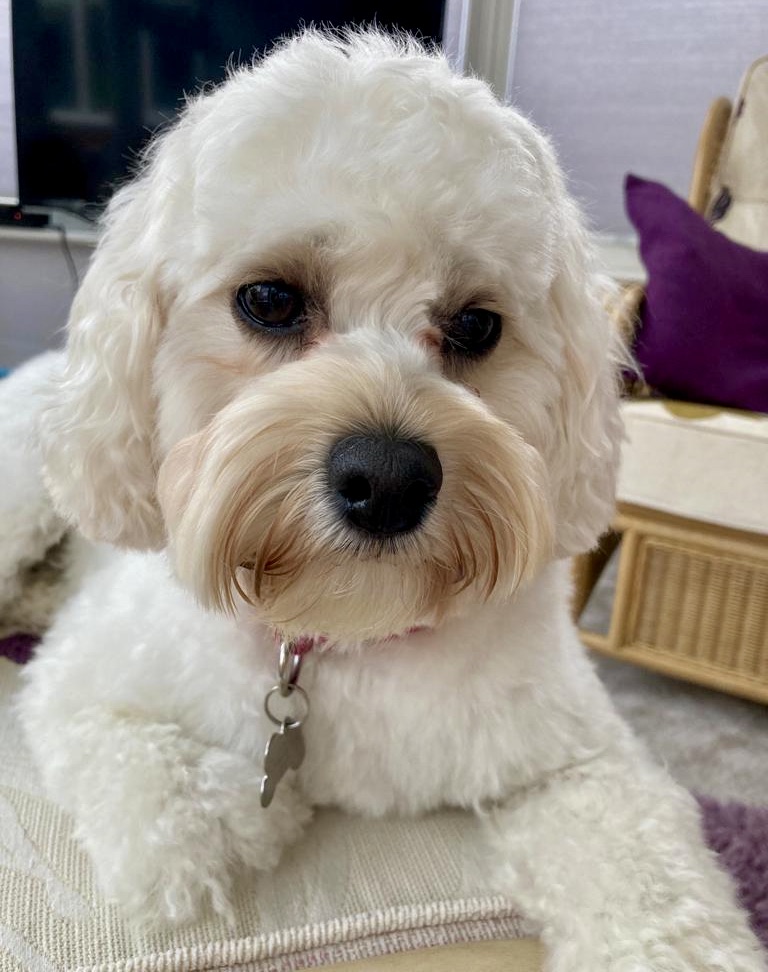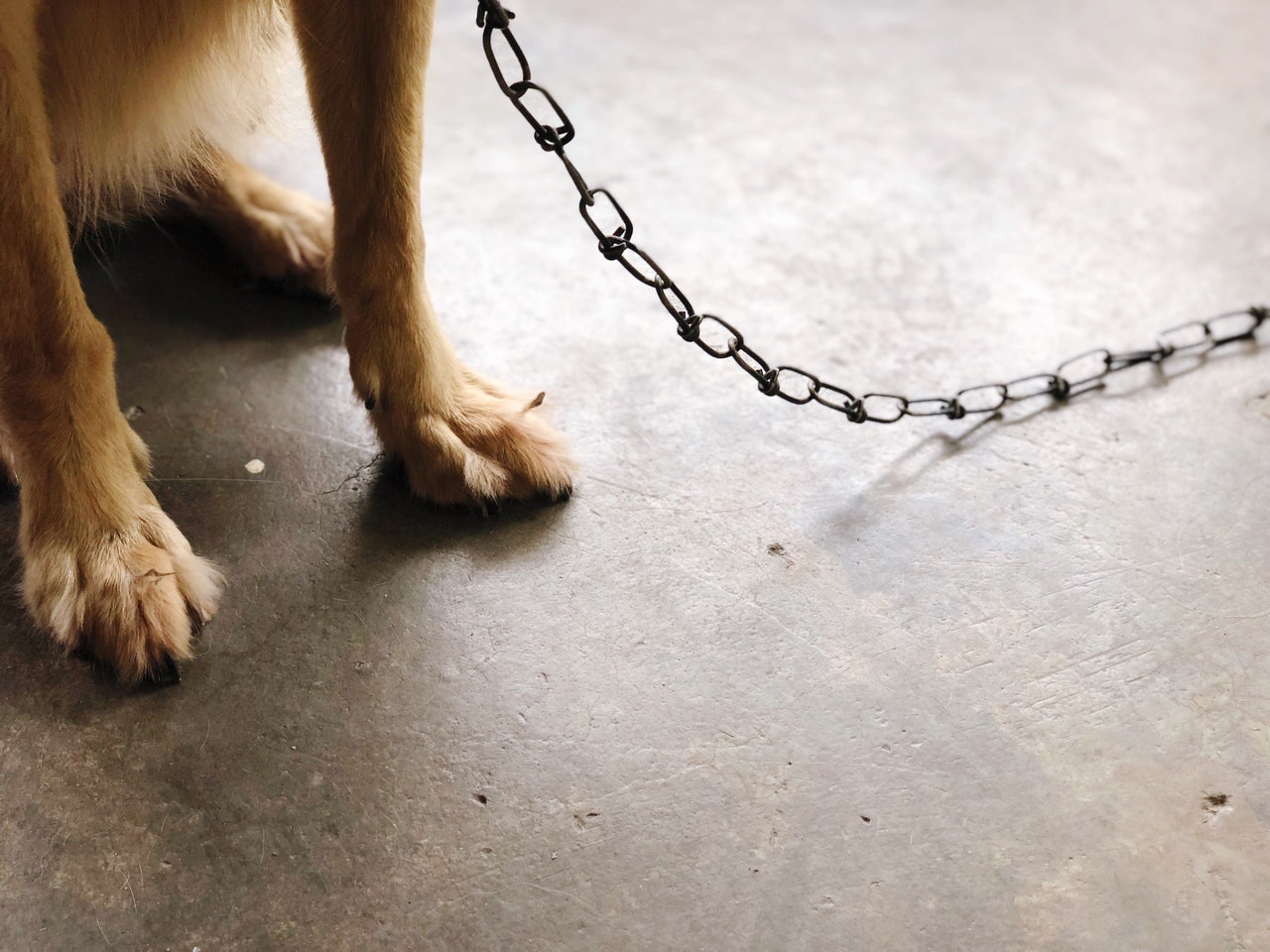
Nothing is as anxiety-inducing as welcoming a new member to the family! While my two girls are more than ready to add a dog to our family, it’s not quite the best time for us. However, my parents are pooch-parents to a beautiful 1-year old called Rosie.
She is a very much-loved dog. My kids absolutely love her and want to spend as much time as possible with her. She loves the attention and fuss (but not too much from my little man) but at the same time can be quite an anxious little dog.
This was exacerbated during one of her walks when she had a near-miss attack from a bigger dog. Luckily, my step-dad was able to save the day, otherwise, things could have been very different. The attack was completely out of the blue and unprovoked so of course, it was quite a traumatic experience; for the pet owners and the dog!
Since Rosie is still dealing with a lot of dog anxiety, I thought it would be a great chance to talk about the topic and what my parents, as pet owners, are doing to help her.
How to Help an Anxious Dog
It can be tricky to navigate anxiety and nervousness with a friend or family-member, so of course, you may come up against some of the same issues with your dog. It is often hard to know what to do. The same chronic pain that effects people can also take its toll on your dog’s health if you don’t help them to cope.
Here are some tips for dog owners to help with anxiety relief:
Be there for your dog and spend time with them
This may seem obvious, but spending time with dogs with anxiety can do a long way to helping them feel reassured and comfortable. This could be letting them sit with you, sit on your knee, or just simply being around you. You can also stroke or massage them, to keep them feeling relaxed and calm. Don’t underestimate the benefits of a little doggy massage to providing anxiety relief (this goes for pet parents as well)!
Avoid anxiety triggers
After the incident, interacting with other dogs was an issue for Rosie. If another dog was approaching then we’d cross the road or let a dog and owner pass us if they were coming from behind. This was easier and made her feel safer and less anxious, as she would get a bit panicky if another dog got too close.
Small dogs, and maybe most dogs that aren’t super social, can be alike in this way. The last thing you want is for your dog to have an anxiety attack in an unfamiliar environment.
Look into CBD oil for anxious dogs
CBD oils have risen in popularity over the past few years, to help people with aches and pains, anxiety, and other mental health issues. Of course, CBD oils for dogs with anxiety have also been gaining popularity.
You just apply the CBD oil directly into their mouth or through with soft chews and other dog treats. How much CBD oil you should use depends on your dog size and breed. They could have other health benefits, but honestly, I can’t tell you too much about the science, all I know is that the CBD works and Rosie loves the peanut butter flavors. If this is something you think could help your anxious pup, this article gives you some high-quality CBD oil for dogs.
Try a shorter lead when taking a walk
It was much better for Rosie to be on a shorter lead when out having her walks. It kept her close by and she could be picked up if need be too. Both things help to keep her calmer, especially if she heard sudden loud noises or medium dogs came out of nowhere.
This ties back into keeping your dog reassured and comfortable. They can come around and become more confident over time if they know there’s always safety nearby.

Collar with calming pheromones
My family tried one of these collars for Rosie to help with calming her. Usually, in their wild habitats, pups and adult dogs live in groups and release pheromones, which can comfort and reassure each other.
They are usually released by lactating dogs and the ears of adult dogs. A suitable collar can provide your dog with these calming pheromones and help them in a stressful situation. It might also help dogs that are dealing with separation anxiety or dogs with age-related anxiety.
Speak to a professional Vet or Dog Trainer
Sometimes it can be tricky to support an anxious dog and you might not know what to do. When things weren’t improving quickly, my family did speak to our local vet for some advice about Rosie.
These are professionals and might understand a lot more about a dog’s pain than you might think. Be sure to make note of the dog’s symptoms so you can give them all the information they need to provide proper care for your dog.
Coping with an anxious dog can be tricky and it can be challenging but like us, dogs need reassurance, validation, and support to manage their nervousness.
With time, support, and incorporating some of the above tips and tricks, your dog’s anxiety may be that little bit more manageable. I hope this helps!
Disclosure – this is a sponsored post.
